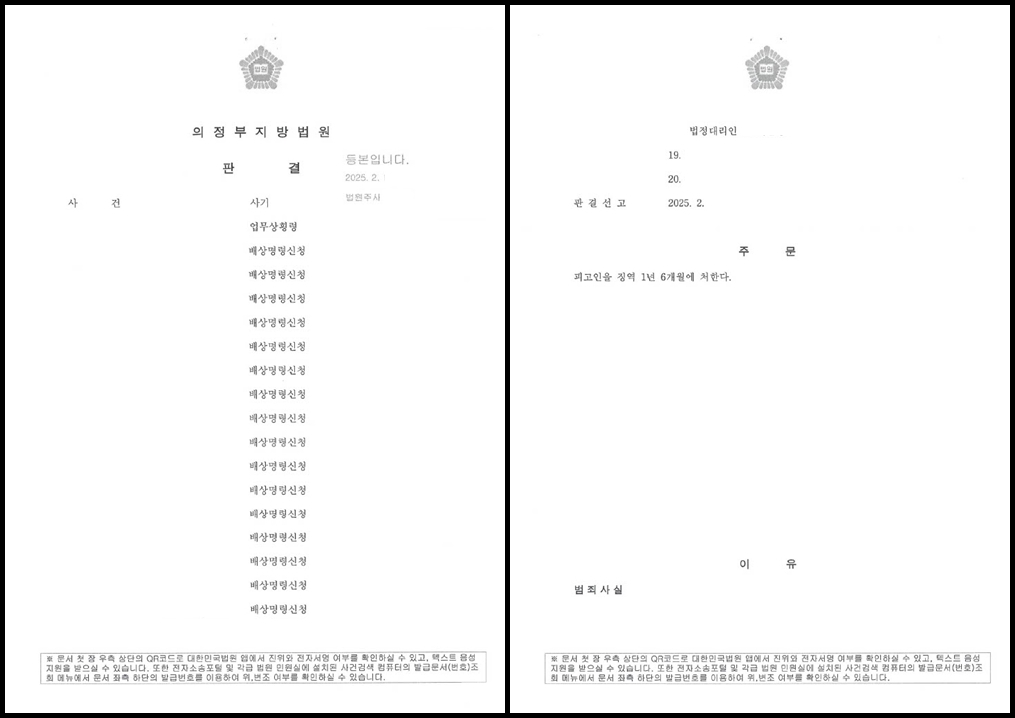Case overview
Our client (Complainant) was a partner in a local exercise center and discovered that his partner, Respondent, was taking membership dues into his personal account rather than the revenue account provided for in the joint business agreement and using the money for personal use, to the detriment of the business.
As a result, the client was forced to close his business and suffered economic damage, including refunds and demolition costs, and came to us with a complaint of injustice.
Case issues
The main issue was whether the defendant's receipt of membership dues into his personal account constituted a breach of a joint business agreement and embezzlement with intent to defraud.
Assistance from Ongang
Ong Kang provided systematic legal assistance to protect the client's rights and clearly demonstrate the defendant's illegal behavior.
First, we thoroughly analyzed the joint business agreement, revenue account records, and membership fee deposit records provided by our client to prove that the defendant's behavior was a breach of contract. In particular, we scrutinized the deposits and withdrawals to prove that the money received by the defendant in his personal account was for personal use and not for business operations.
He also reviewed the jurisprudence on the "intent to unlawfully benefit" requirement for the offense of embezzlement, arguing that the defendant's conduct clearly constituted business embezzlement. He presented case law from similar cases to make a persuasive argument that the receipt of funds into a personal account in violation of a joint business agreement constituted embezzlement.
We pointed out that the accused claimed to have used the money for business expenses, but there was no objective evidence to support this, and we identified contradictions between the accused's statements and the records of the expenditures and actively refuted them in the investigation and in court.
Emphasizing that the defendant's embezzlement was responsible for the economic losses suffered by his client and the closure of his business, he detailed the mental and economic suffering of his client and requested that the defendant be severely punished.
■ Result
The court sentenced the defendant to sentenced the defendant to one year and six months in prisonand ordered him to pay compensation for the financial losses suffered by our client.
With Onkang's help, the client was able to resolve her injustice and regain her rightful rights.
Case outcome materials



